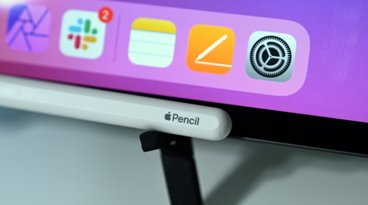Steve Jobs was ‘annoyed and depressed’ over initial reaction to iPad launch
Early in 2010, Apple arranged a special event specifically to unveil the iPad, but the media covering the event (which AppleInsider attended) heaped scorn and castigation on the new product, complaining about its inability to run Adobe Flash and deriding it as "just a big iPod touch."
In the new book, according to a report by the Huffington Post, Jobs reportedly told Isaacson that the immediate media backlash left him "annoyed and depressed."
The night of the iPad launch, Jobs confided with his biographer, "I kind of got depressed today. It knocks you back a bit."
Knocking on Jobs
Complaints were attached to nearly every aspect of the new tablet; a review of the media's coverage of the new iPad makes it clear that very few in the media (or among financial analysts) saw even a portion of the real potential of the new product, and they didn't come around until Apple began reporting its sales figures.
Expressing a rare standout opinion, David Pogue of the New York Times noted, "That [criticism] will last until the iPad actually goes on sale in April. Then, if history is any guide, Phase 3 will begin: positive reviews, people lining up to buy the thing, and the mysterious disappearance of the basher-bloggers."
But by and large, the iPad was equated with Tablet PC and the Amazon Kindle and mocked as "over-hyped and under-delivered," while pundits demanded 2.0 features a year early. Hours after the iPad's unveiling, the phrase "iPad a disappointment" became a "spicy" trending topic as ranked by Google. Bloggers offered top ten lists of "reasons not to buy" the iPad.
Dan Lyons of Newsweek, who had built a career around mocking Jobs and has had plenty of nice things to say about free equipment Microsoft has sent him to review, sniped "I haven't been this let down since Snooki hooked up with The Situation," at the launch of the original iPad, adding in his "insta-reaction" that "Jobs himself seems tired and low-key. Speculation about his health, and its impact on Apple's ability to innovate, may only increase after today's event."
A year later, many of the same bloggers and journalists expressed giddy anticipation for Google Android 3.0 Honeycomb tablets with a similar form factor, less software functionality and greater cost, tied to devices that weren't even ready for sale yet and wouldn't be for months.
Seething hatred for Jobs and Apple by members of the media
Despite having knocked a series of home runs out of the park with the original iPod, every iPod update, the iPhone and a widening series of new Mac models, members of the media pounced on Apple's iPad either in the expectation that it might fail and that they could be the first to predict such failure, or a simple bitterness about not being invited to the event.
The reaction of some members of the media to getting anything less than VIP treatment by Apple was characterized by San Mateo County police as "juvenile," while investigating the actions of Gizmodo bloggers involved in obtaining and refusing to return an iPhone 4 prototype last summer.
District Attorney Steven Wagstaffe stated, "It was obvious they were angry with the company about not being invited to some press conference or some big Apple event. We expected to see a certain amount of professionalism-this is like 15-year-old children talking." He added, "There was so much animosity, and they were very critical of Apple. They talked about having Apple right where they wanted them and they were really going to show them."
The end of the media's self fulfilling prophesies
Gizmodo wasn't alone in using its audience to heap contempt upon Apple and Jobs, sometimes out of vengeful malice for being snubbed, sometimes out of ideological hatred for Apple's business model or jealously of its success.
But regardless of their intent, fanning the flames of criticism against Apple has seemed to have a single result: the company weathered the storm of criticism and focused on delivering products customers wanted. Increasingly, that has also resulted in Apple's customer base growing, including people who would never have considered buying a Mac, but would look at the iPhone or iPad or the free iTunes, and then subsequently buy a Mac afterward based on their positive experiences.
Apple's customer base has exploded from what was around 20 million Mac users just five years ago into hundreds of millions of iTunes users who have purchased more than 250 million iOS devices. At the same time, Mac sales have also grown dramatically. Apple now sells around seven times as many Macs in a quarter as it did just a few years ago.
The power of the media (and the pundits they choose to interview) to actively repress Apple's sales in favor of alternative vaporware promises by its competitors has increasingly evaporated since the early days when tech news was printed on paper, a month or two after events actually happened. The immediacy of the Internet has allowed people to keep themselves independently informed, erasing the media's ability to erect fallacies and parade them around until they are recognized as facts.
Killing with faint praise
At the same time, while modern (if scathing) criticism of Apple has seemingly only made the company stronger and better adapted to delivering the products people are willing to buy, the overtly supportive glorification of Apple's competitors has appeared to have the opposite effect.
From their first appearance on the smartphone stage following Apple's iPhone, Google's Android, Palm's webOS and Microsoft's Windows Phone 7 have caused the general media to bend over backward to scrounge for ideas they can praise while politely ignoring their faults. In general, the result has been that the customers they pushed toward these products have walked away irritated.
The media in general fawned over the premise of Android 3.0 Honeycomb Tablets, described Microsoft's Zune media player and KIN smartphone as interesting first efforts customers should consider while describing Microsoft's Courier project as being as real as the iPad, and offered nearly unbridled praise for the Amazon Kindle, Google ChromeBooks, and (initially) Windows Vista.
Rather than driving blockbuster sales for those products, glowing reviews and praise only had the affect of setting users' expectations higher than their respective vendors could deliver. Such polite reporting on companies outside of Apple has also had the effect of ignoring or covering up significant problems that more honest reporting should have demanded be fixed.
After being all but ignored for years, Google's security-free software model for Android is now suffering from a plague of malware approaching the extent of Windows XP ten years ago, except that smartphones often have far more sensitive data to steal and are easier to ring up fraudulent charges on than PCs. In contrast, any potential security flaws (or unpopular designs) released by Apple have been dogged with contempt until they are addressed. Typically, that has occurred before there were any real problems occurring in the wild.
Will the media continue to hate Apple into perfection or give it a pass to coast into irrelevance?
The efforts and resources Jobs channeled into the iPad and its iPad 2 successor this year were vindicated long before he passed away, making his pain and disappointment at its initial launch a short lived phenomenon.
With Apple now being run by Tim Cook and the executive team Jobs assembled and orchestrated, it remains to be see if the media will continue to mock and denigrate its products while enthusiastically recommending alternatives that are almost always inferior, poorly designed and deeply flawed.
If they do, it appears that Apple will continue to benefit from this over-the-top criticism. On the other hand, if the media in general begins to fawn over every new Apple release and grant Apple a free pass to deliver less than the best products, it's likely the the company will degenerate as rapidly as the health of a well fed monarch.
 Daniel Eran Dilger
Daniel Eran Dilger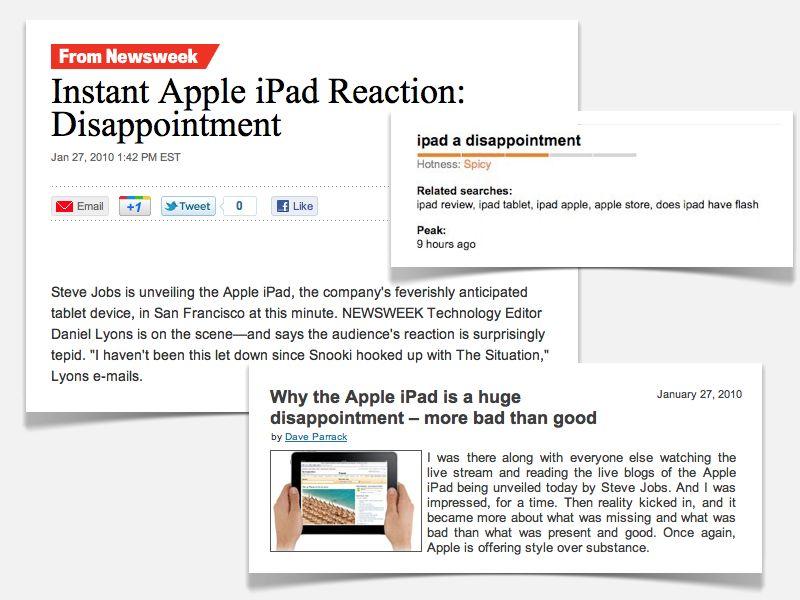











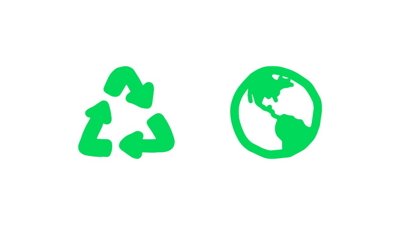
 Amber Neely
Amber Neely
 William Gallagher
William Gallagher
 Malcolm Owen
Malcolm Owen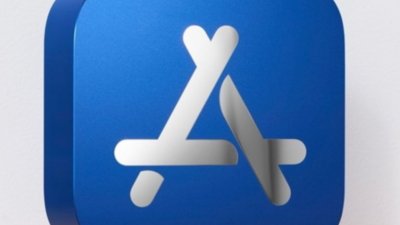
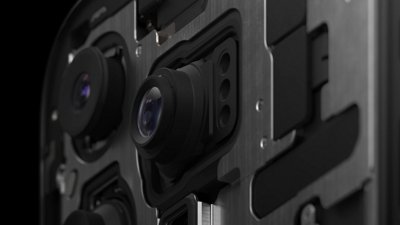

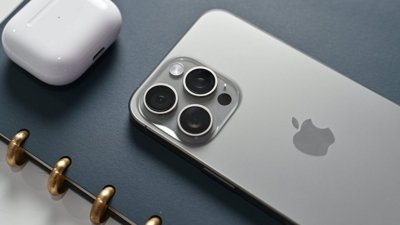
 Mike Wuerthele and Malcolm Owen
Mike Wuerthele and Malcolm Owen
 Sponsored Content
Sponsored Content

